In the previous posts of this series, we have seen that according to Iqbal, we need to transform individually in order to participate in the life of our communal self, or our collective ego. This transformation also involves a change in our action and behaviour, which is the topic of this post.
This external transformation comes through the “institutions of Islam”, especially law and politics, as these institutions are regulated by the idea of universal agreement:
The idea of universal agreement is in fact the fundamental principle of Muslim constitutional theory. ‘What the Muslim community considers good,’ says the Prophet, ‘God also considers good.’ It is probably on the authority of this saying of the Prophet that al-Ash’ari developed his political dogma—‘That error is impossible in the united deliberations of the whole community.’
Iqbal, ‘Political Thought in Islam’ (1908)
Universal agreement means consensus, which is not always possible in practice. But the “idea” of universal agreement, i.e. the desire to seek consensus, can always be kept alive. This idea, or this desire, is the fundamental principle of the Muslim constitutional theory according to Iqbal. To borrow a phrase from the American management scientist Mary Parker Follett (whom Iqbal acknowledged as a like-minded thinker), we may also call it “the will to will the common will.”
To be transformed through this principle means that this idea – the desire to seek consensus – should regulate our actions in every sphere of social and political life:
One lesson I have learnt from the history of Muslims. At critical moments in their history it is Islam that has saved Muslims and not vice versa. If today you focus your vision on Islam and seek inspiration from the ever-vitalizing idea embodied in it, you will be only reassembling your scattered forces, regaining your lost integrity, and thereby saving yourself from total destruction.
Iqbal, Allahabad Address (1930)
The “ever-vitalizing idea” mentioned here is none other than the idea of universal agreement, as evident from the very next lines in this passage:
One of the profoundest verses in the Holy Quran teaches us that the birth and rebirth of the whole of humanity is like the birth and rebirth of a single individual [Quran, 31:28]. Why cannot you who, as a people, can well claim to be the first practical exponent of this superb conception of humanity, live and move and have your being as a single individual?
Iqbal, Allahabad Address (1930)
If the individuals are not guided by this idea, they “start independent careers without contributing to the general thought and activity of the community.” This loss of what may be called “the herd-instinct” is the greatest evil against which Iqbal asked his community to guard itself, as mentioned in the second post).
The remedy which he suggested was that there should be just one political organization, but it should keep its doors open to all schools of thought:
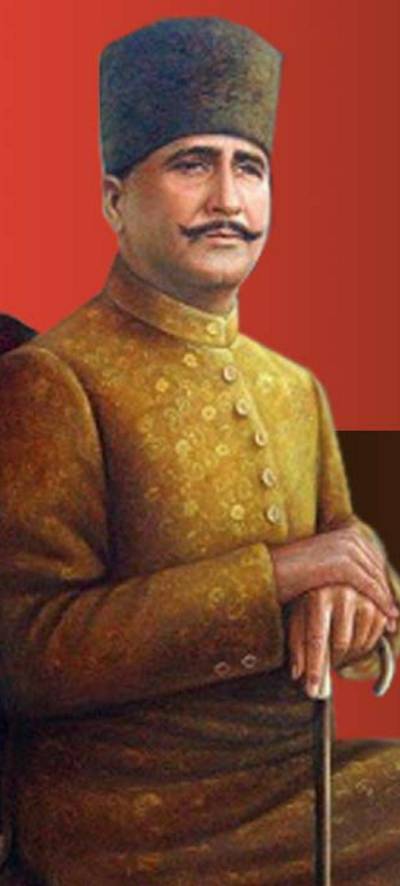
“To remedy this evil I suggest that the Indian Muslims should have only one political organization with provincial and district branches all over the country. Call it whatever you like. What is essential is that its constitution must be such as to make it possible for any school of political thought to come into power, and to guide the community according to its own ideas and methods. In my opinion this is the only way to make ruptures impossible, and to reintegrate and discipline our scattered forces to the best interests of Islam in India.”
Iqbal, Presidential Address to the All-India Muslim Conference, 1932
So that we may not misunderstand him, we need to know a few basics of political science which were common knowledge at that time but have been lost since then, especially to the more highly educated ones among us.
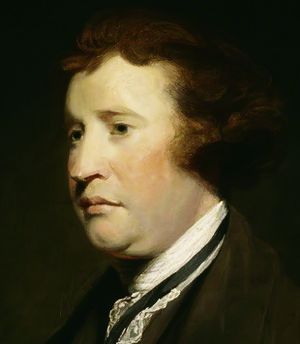
A political party was defined by the British philosopher Edmund Burke as “a body of men united for promoting by their joint endeavours the national interest, upon some particular principle in which they are all agreed.”
Hence, the essence of a political party is some principle or thought “particular” to it and not to the entire society. The party seeks power in order to implement it without accommodating other schools of thought. If it wins, it carries it out. If it loses, it sits in the opposition.
The idea of universal agreement or the desire to seek consensus has no room in this concept, and it was only natural for Iqbal to seek an alternative to political parties. But he was certainly not suggesting one-party system:
- Iqbal’s suggestion is different because in the one-party system, the party sticks to its ideas whereas Iqbal believed that ideas are generated through consensus.
- In the one-party system, a single party implements its ideas and is not open to other schools of thought. On the contrary, the type of organization proposed by Iqbal is open to every school of political thought (this, in fact, is its defining feature).
- The one-party system is usually imposed by legally restricting the formation of rival parties. Neither Iqbal nor anybody else from his school of thought ever suggested any such thing. They believed that the significance of having just one political organization instead of many is something to be recognized by each individual through a personal “transformation” – the same transformation which is the topic of this post.
Iqbal was not the first to seek an alternative to political parties. Some of us wrongly presume that democracy cannot be conceived without political parties, when in fact, that is exactly how democracy was conceived originally (see the image slider below).
So, even in his own times, Iqbal was not the only one who suggested such an organization. His community, the Muslims of the Indian sub-continent, had practically set up this type of organization in 1906 (a point to which we will return soon). The American management scientist Follett had offered the same concept by the name of “group organization” in her groundbreaking work, The New State, in 1918. In India, C. R. Das had tried to implement the idea from the platform of the Indian National Congress from 1922 till his untimely death in 1925.
Since the Muslims of the Indian sub-continent had started to organize themselves around the principle of consensus since the beginning of their Renaissance (as mentioned in “the second post”), it was only natural that the first political organization which they formed in December 1906 was consistent with this principle. It was the All-India Muslim League.

Before proceeding further, I would like to clarify that the parties called “Muslim League” today might or might not have descended from the original one. Whatever is being said about the “Muslim League” here is strictly about the original organization, and need not be applied to its present-day namesakes.
From its very inception, the All-India Muslim League claimed to be a platform open to all schools of political thought in the community. It remained the only political party of the Indian Muslims for some time but had become heavily overshadowed by rival parties in 1932, when Iqbal made the suggestion quoted above. This was practically a call for the revival of this organization, and the revival occurred a little later under the leadership of Jinnah. Iqbal devoted the remaining few years of his life to this cause.
As I have explained in more detail in a separate post (“The significance of the All-India Muslim League“), both Jinnah and Liaquat Ali Khan described the Muslim League as “the national organization”, and insisted that every Muslim must join it. This was the idea that united the Muslims of the Indian sub-continent in the 1940s, and Pakistan was created by this means.
These leaders did not give up this idea even after the birth of Pakistan. The following is a quote from one of the speeches delivered by Jinnah some time after independence:
“Very often it is said, ‘Why cannot we have this party or that party?’ Now let me tell you, and I hope you will agree with me, that we have as a result of unceasing effort and struggle ultimately achieved Pakistan after ten years. It is the Muslim League, which has done it.
Jinnah, Address to public meeting in Dacca (now Dhaka, in Bangladesh), 21 March 1948
“There were of course many Massalmans who were indifferent; some were afraid, because they had vested interests and they thought they might lose. Some sold themselves to the enemy and worked against us, but we struggled and we fought and by the grace of God and with His help we have established Pakistan which has stunned the World.
“Now this is a sacred trust in your hands, i.e., the Muslim League. Is this sacred trust to be guarded by us as the real custodians of the welfare of our country and our people, or not? Are mushroom parties led by men of doubtful past to be started to destroy what we have achieved or capture what we have secured?
“I ask you one question. Do you believe in Pakistan? (Cries of yes, yes). Are you happy that you have achieved Pakistan? (Cries of yes, yes), Do you want East Bengal or any part of Pakistan to go into the Indian Union? (No, no). Well, if you are going to serve Pakistan, if you are going to build up Pakistan, if you are going to reconstruct Pakistan, then I say that the honest course open to every Mussalman is to join the Muslim League Party and serve Pakistan to the best of his ability.
“Any other mushroom parties that are started at present will be looked upon with suspicion because of there past, not that we have any feeling of malice, ill will, or revenge. Honest change is welcome, but the present emergency requires that every Mussalman should come under the banner of the Muslim League, which is the true custodian of Pakistan, and build it up and make it a great State before we think of parties amongst ourselves which may be formed later on sound and healthy lines.”
The last few words of this quote need not be taken as a recommendation to “think of parties amongst ourselves” later. Liaquat Ali Khan understood them to mean that “later we will think whether we need any other political party”.
Hence, the concept of a national organization is the most important practical idea in the thought of Iqbal, and all his other ideas depend on it for their implementation. As far as I know, this idea has remained out of the grasp of every scholar of Iqbal Studies (including myself until recently). This is why we have never been able to find the starting point for the implementation of Iqbal’s thought after 1954 (the year when the idea of national organization was abandoned).
The same could be said about Jinnah’s “vision of Pakistan”, which everybody seems to have become so fond of talking about lately. As can be seen here, the idea of a national organization is central to the politics of Jinnah. By missing this crucial point, we have also been failing to understand his vision.
For Pakistan and South Asia, the greatest significance of this idea lies in the fact that Pakistan is based on the Delhi Resolution of 1946, which has also been determining the direction of the subsequent history of South Asia since then (as we saw in the second post). The pledge which the Muslims took at the time of adopting that resolution included a promise to “willingly and unflinchingly carry out all the directions and instructions which may be issued by the All-India Muslim League”. This was a commitment to the idea of national organization.
If the passage from Jinnah’s speech of March 1948 is read in the light of this fact, he seems to be stating quite clearly that Pakistan cannot be sustained without a national organization. This is exactly how Liaquat Ali Khan understood the matter:
“So long as we or any one of us is alive, we must not forget the pledge for which the Muslims made a sacrifice so colossal. But this pledge cannot be redeemed unless Pakistan has a political organization which may say what Islam is and what those principles are which should determine and control the conduct of this State. This task the Muslim League alone can accomplish. It is the duty of every one of us to make Pakistan strong and this can be done only by making the Muslim League strong; for, a strong League means a strong Pakistan.”
Liaquat Ali Khan, Address to the Pakistan Muslim League Council, Karachi, 20 February 1949
We may now understand that the most important change which, from the point of view of Iqbal, we need to bring in our action and behaviour (our transformation “externally”) is that we should seek to revive the “national organization” which created Pakistan.
We may remember the truck driver whose call for unity from 2014 was shared in the previous post. There, we saw him as an individual whose habits of thought seemed to have been transformed by the essence of our uniform culture, in spite of his apparent lack of what is usually called the higher education. Here, we might see that in addition to those habits of thought, his habits of action also appear to have been transformed by the fundamental principle of the Muslim constitutional theory, i.e. “the idea of universal agreement”. Although he identified himself as the supporter of a certain political party, he asked his leader to shake hands with his sworn political enemies and bring everybody together for adopting a suitable course of action through consensus. This suggestion, offered so spontaneously and out of sheer grief and pain, was nothing short of one possible initial step towards the revival of national organization.
If we could take that truck driver as a true representative of even just a section of our masses, it would appear that this section has been transformed internally and externally in a manner that enables it to participate in the life of the communal self.
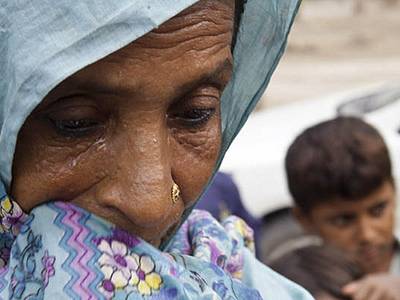
There is every reason to presume that this section of our masses has been participating in the life of the communal self, and such contribution might have been a major factor in the achievement of those consecutive goals which define “the seven stages of Pakistan”.
This participation in the life of the communal self, which our masses seem to have been making, might be seen as being made unconsciously. If the participants were to receive such education that makes them aware of the life of the communal self, their contribution would then become a conscious act rather than an unconsciousness one. According to Iqbal, the outcome cannot be anything short of a miracle, as we are going to see in the next post.
The untold story of Pakistan | The seven stages of Pakistan | The uniform culture | National organization | Conscious evolution | National education
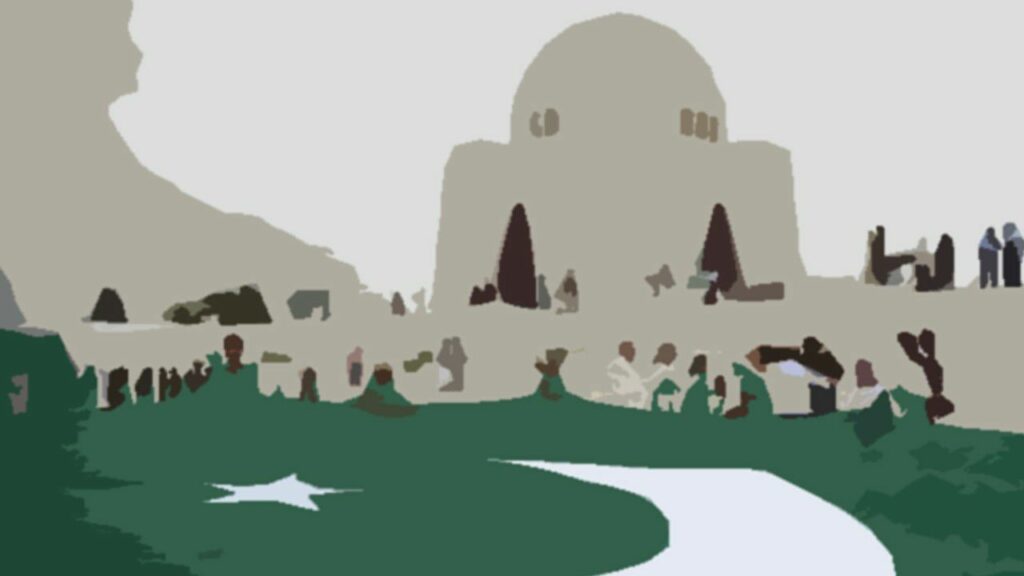
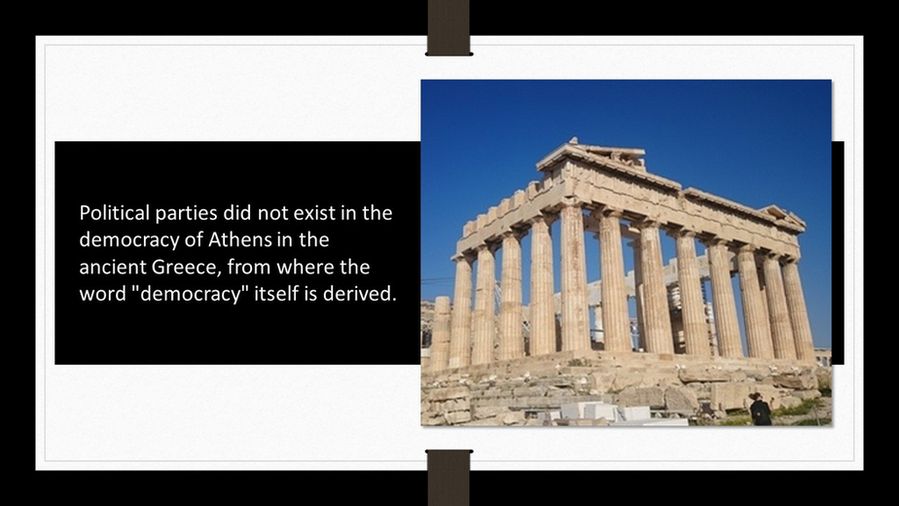
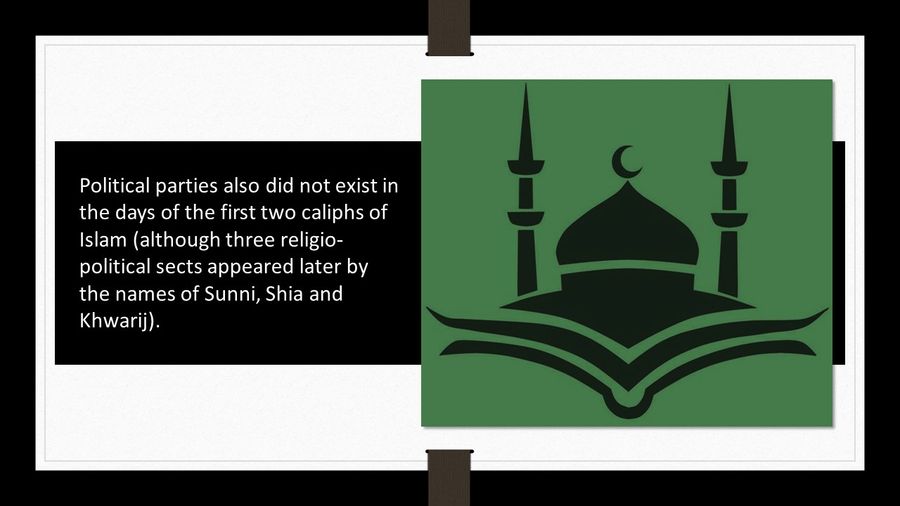
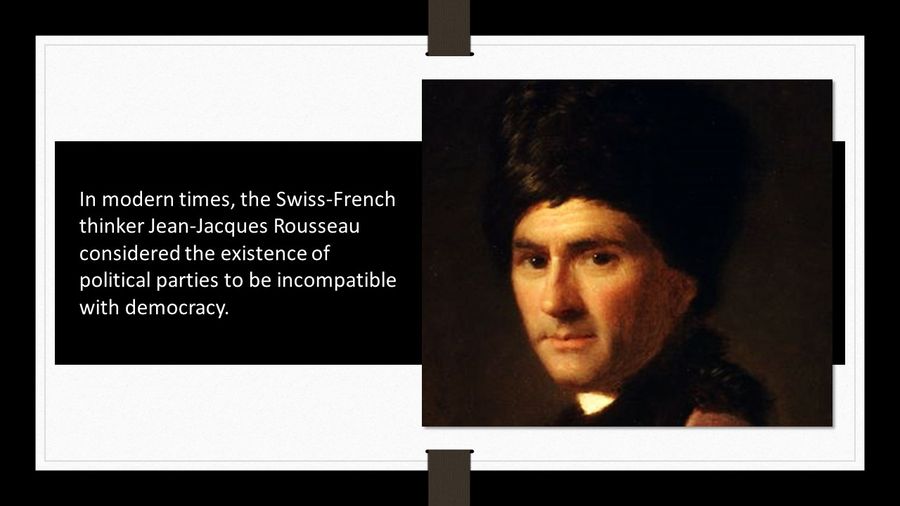
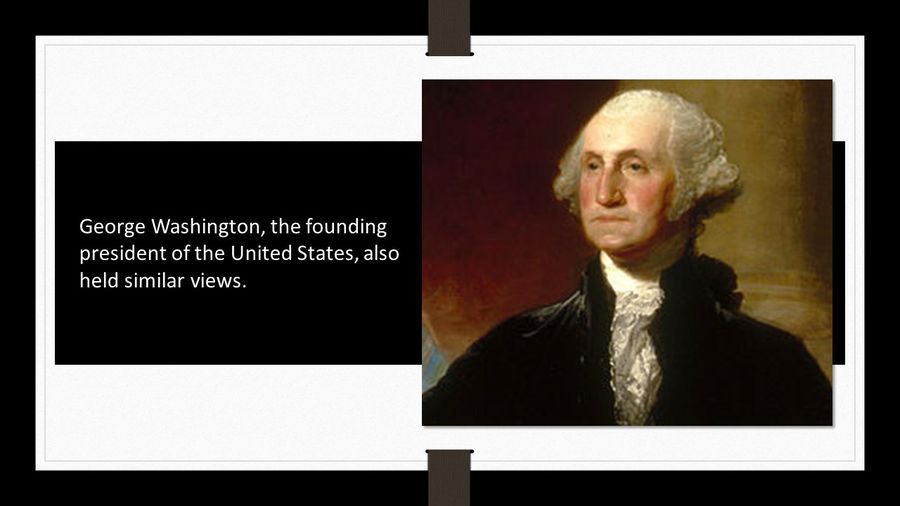
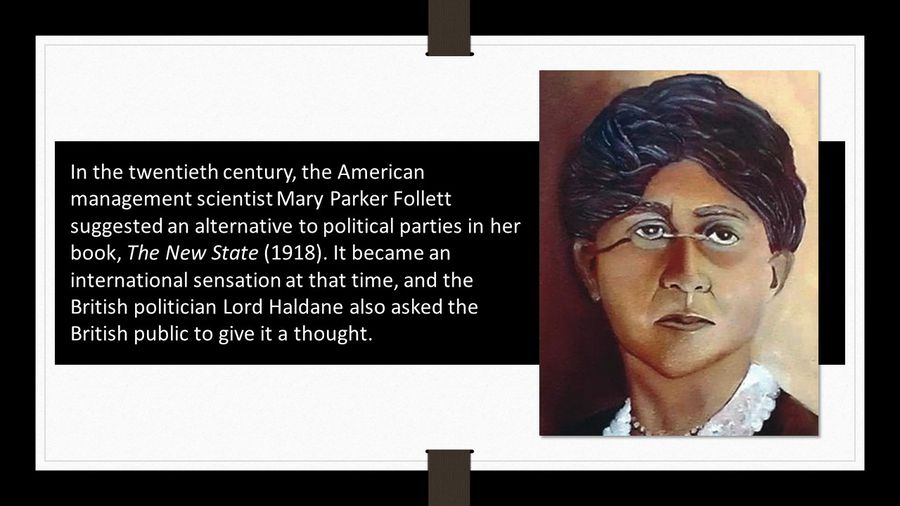
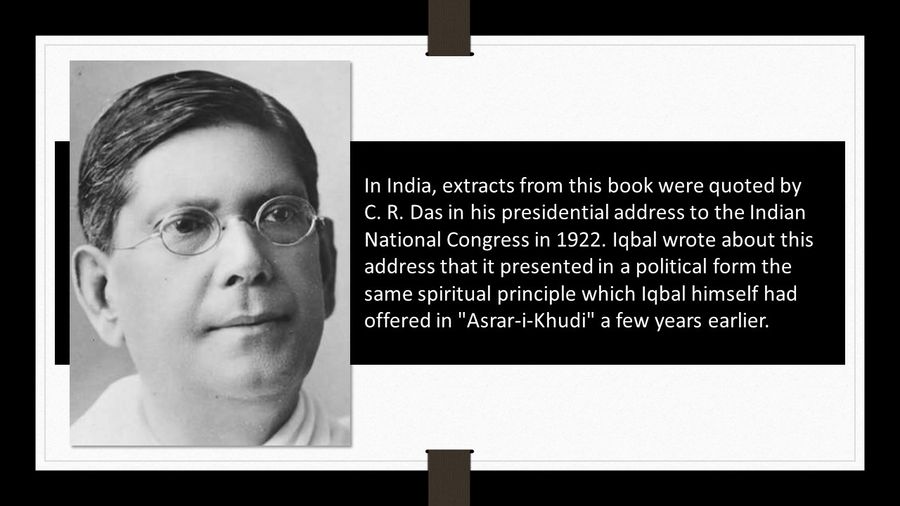
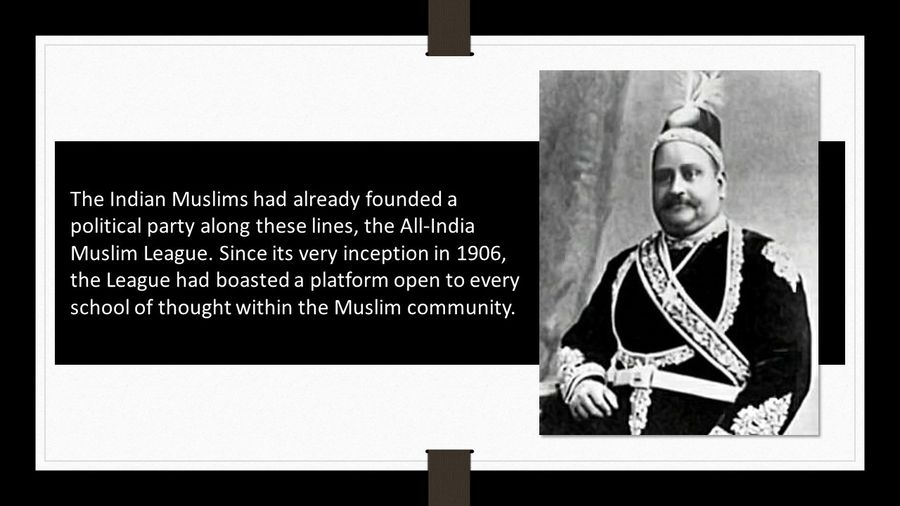
Informative! But left me in confusion. Like there is no Muslim league left, so what to do now?
Some ideas here are possibly needful for more elaboration (though I feel a blog post may not be the best form for such an undertaking). These ideas include the practical implications of such ways of thinking pertaining to the political philosophy you are trying to express – which are coming from the experience of the founding fathers of Pakistan, and other South Asian Muslim leaders. A lot of these ideas will also need to be fleshed out in comparison to current thinking about the subject. For example, a special mention of how Iqbal’s ideas for building consensus are different from the “One party system” are very useful points above. This is especially true because some ideas seem rather radical, like having no “party” to develop democracy. However, a greater comparative discussion will really clarify our understanding, and simultaneously boost our confidence in our culture/history – that we also possess some unique and interesting ideas pertaining to political philosophy, etc.
How apt this post is when the sane voices in the UK and other concerned regions are crying for the lost humanity after their elections. Criticism (among political parties) for the sake of criticism only kills the main objective; i.e., to serve the nation. We are watching its worst form every day on our national TV how continuous bickering is only resulting in destruction and nothing else. That truck driver is more enlightened than us. And we call ourselves educated. Ironic.